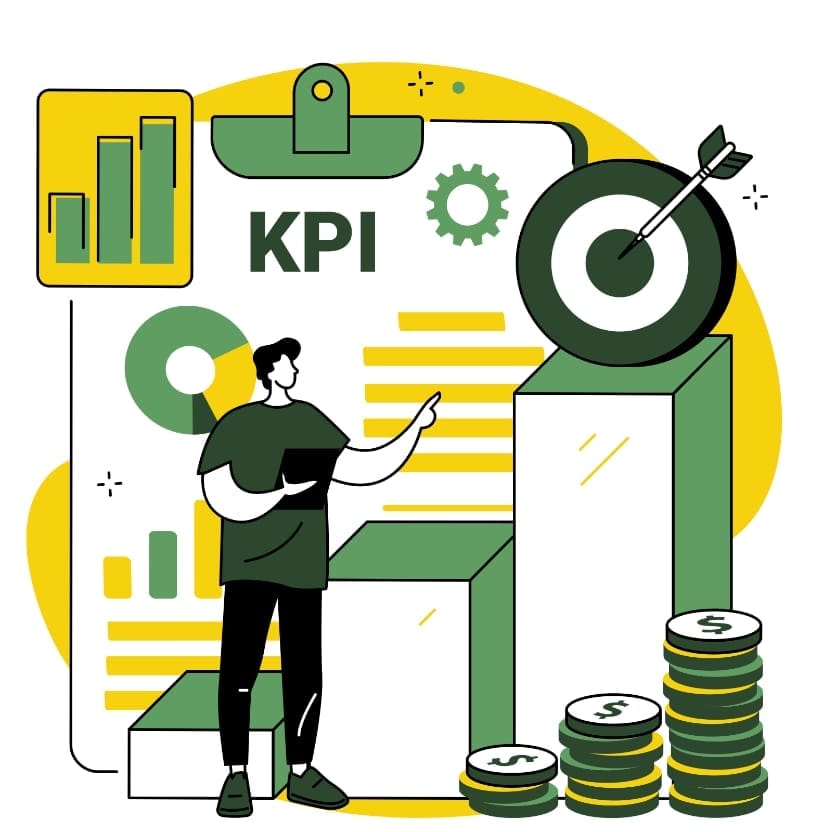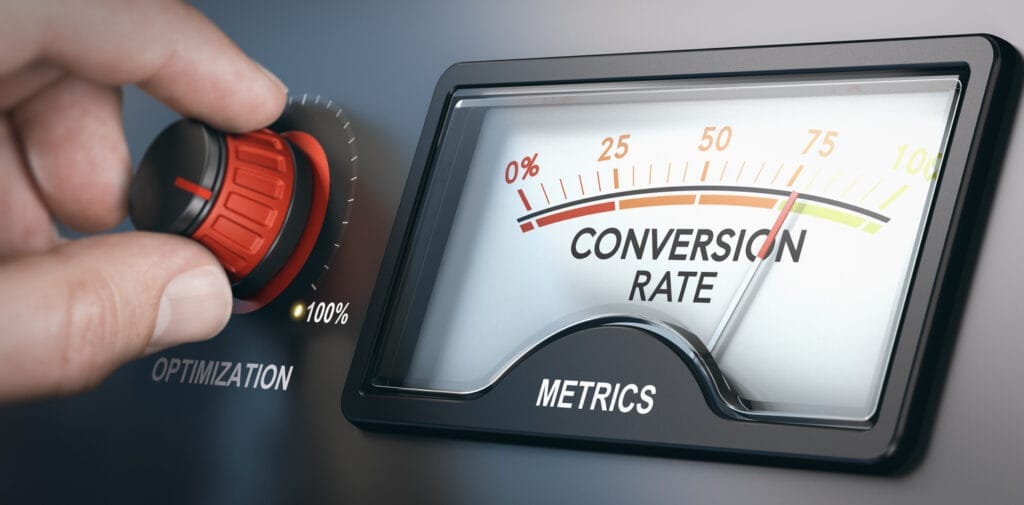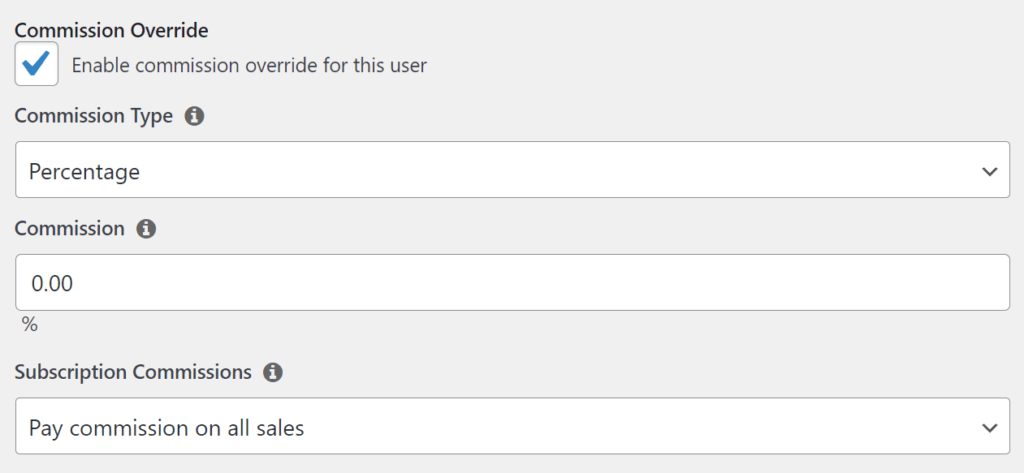Table of Contents
Affiliate marketing is your low-risk ticket to a customer-rich destination. Paying only when new customers are secured? It's a marketer's dream!
But to really make the most of your affiliate marketing strategy, you need to keep a keen eye on your KPIs (Key Performance Indicators).
Without tracking these signposts, you may never fully tap into the amazing potential of your affiliate program.
Essential as they are, tracking affiliate marketing KPIs can sometimes leave even experienced marketers scratching their heads. But lean in, folks, because we have the answer…
UTM tracking.
If you’re a Google Analytics pro, you probably already know a bit about UTM tracking.
If not, don’t worry, we’ll give you the lowdown, illustrate how it works, and highlight the key KPIs you can derive from it. These insights will empower you to rev up your affiliate strategy and drive it to new heights.
Get ready to get serious about affiliate marketing KPIs, and power up your affiliate strategy.
Let’s step on it!

Getting Up to Speed with UTM Tracking for Affiliate Marketing KPIs
If you’ve ever clicked on an affiliate link, you probably noticed a load of gobbledegook at the end of the URL.

Look closer and you’ll see the letters “utm” repeated.
UTMs, or Urchin Tracking Modules, are simple codes added to the end of your URL to track some critical data about your website visitors.
For example, you can see which campaign they're responding to, the platform they arrived from, or the precise piece of content that sparked their interest.
A Closer Look at UTM Parameters

UTM parameters come in several variations, each acting as a guidepost pointing to a different piece of information about your traffic.
Here’s what each UTM parameter of an affiliate link means:
- Medium (utm_medium): This tells you which affiliate the link belongs to.
- Source (utm_source): This tells you the domain of the site where the affiliate link was clicked.
- Campaign (utm_campaign): If your affiliate is using a link from a Creative (a text link or banner you created using Easy Affiliate) it will show up here with the campaign name you created (e.g. summer-sale) More on this later!
- Content (utm_content): This can help you differentiate different links within the same campaign.
Today, UTM tracking is an integral feature of Google Analytics, for tracking website traffic and campaign performance.
By leveraging UTM tracking, Google Analytics can give us a detailed picture of
- where traffic is coming from
- which marketing campaigns are driving the most engagement
- what content is resonating with your audience
In other words, it gives you a 360-degree view of your marketing strategy's performance.
This level of detail is particularly useful in affiliate marketing for obvious reasons. You can get data on your affiliates' strategies and performance and find out what specific content on an affiliate's site drives the most traffic or conversions.
This insight can help you work with your affiliates to tweak their content strategy, focusing on what works best for your audience, and drive up the success rate of your affiliate program.
In other words, UTM parameters are the key to tracking affiliate marketing KPIs.
5 Affiliate Marketing KPIs You Need To Monitor
Strapping in with your UTM parameters by your side, you're ready to traverse the exhilarating landscape of affiliate marketing KPIs. Here are the signposts you can track in Google Analytics.

1. Top Performing Affiliates
This is your leaderboard. It tells you who's soaring and who needs a performance boost. Using UTM tracking, you can pinpoint which affiliates are leading the pack in driving traffic and conversions, helping you double down on what works.
For instance, if outdoor bloggers are driving more conversions for your camping equipment than general lifestyle influencers, it signals you to recruit more of these outdoor enthusiasts to optimize your affiliate network.
Recognizing this pattern you can focus on targeting your collaboration with the affiliates who are most likely to drive up product sales.
You can also use this information to reward and further incentivize top performers.
2. Top Performing Campaigns
Which campaigns consistently drive high click-through rates and conversions? With UTM tracking, you can easily identify these most valuable players and use that info to inform future initiatives.
For example, you might find that banners drive the most traffic, or that holiday-themed promotions consistently outperform other campaigns.
3. Click Traffic

This is the heartbeat of your affiliate marketing program, showing you the volume of users interested in your content.
Click traffic stats give you a peek into how many potential customers your affiliates are driving towards your site. More clicks usually mean more opportunities for conversion, so keeping tabs on this is crucial for your strategy.
4. Sales
This is your victory dance! Each sale is tangible proof of your affiliate strategy's success. UTM tracking allows you to attribute each sale to the correct affiliate, so you can give kudos where it’s deserved.
5. Conversion Rates

This metric is useful for showing which affiliate’s content is most efficient at turning interest into sales. Conversion rates are an indicator of which affiliates have mastered the art of persuasion.
You can use this information to provide feedback to underperforming affiliates, helping them to boost their performance and therefore their commission. It’s a win-win situation!
6. Leads
Sure, your ultimate goal is to get more sales, but there are a few scenarios where tracking leads is a better indicator of affiliate performance.
This is particularly the case in the early stages of your marketing funnel or when you’re marketing a high-value or complex product/service.
For example, tracking leads is more informative in cases where the final purchase takes time, such as buying a car or enterprise software.
These KPIs are invaluable road markers guiding you toward your goals. With UTM tracking, these statistics are all easily available through Google Analytics.
Do I Need To Manually Add UTM Parameters to My Affiliate Links?
With Easy Affiliate, that answer is a resounding “No!”

Say Sionara to the tedious task of manually adding UTM parameters to your affiliate links. We believe in making your life easier, not giving you extra homework!
Easy Affiliate will automatically append UTMs to your affiliate links as long as you've enabled UTM tracking in your Easy Affiliate settings.
No more time-consuming link tweaking or worrying about making mistakes. Just sit back, relax, and let Easy Affiliate do the heavy lifting.
Why is this a big deal?
Not all affiliate program tools offer this feature. Without it, you're left to manually add UTMs to each link.
Imagine running multiple campaigns with potentially hundreds of affiliates – that's a whole lot of links! The process can quickly become lengthy, complex, and let's be honest, rather soul-sapping.
With Easy Affiliate, you won't have to worry about this monotonous chore. We're all about helping you streamline your operations and make affiliate marketing a breeze.
Enabling UTM Tracking In Easy Affiliate
From your WordPress dashboard go to Easy Affiliate > Settings > General Tab
Scroll down to the Links section.
Click on the slider to enable the UTM Affiliate Link Tracking option.
It’s really as simple as that!
Affiliate Marketing Data Analysis & Optimization

With your affiliate marketing KPIs tracked and reported, it's time to harness these insights for optimizing your affiliate program.
Here are some practical tips on how to leverage your KPIs for program optimization:
Empower Top Performers
If certain affiliates consistently top your leaderboard in terms of sales or conversions, invest more time and resources into these relationships.
They've already demonstrated a knack for engaging your target audience. Empower them with exclusive campaigns, provide special incentives, or just learn more about their successful techniques.
With Easy Affiliate, rewarding top-performing affiliates with a special commission rate is as simple as enabling the Commission Override feature and adding in the relevant details.

You might also consider setting up affiliate commission tiers to reward your most successful affiliates and incentivize ongoing productivity.
Improve Conversion Rates
Review the strategies used by affiliates with high conversion rates. What kind of content, language, or promotions are they employing? Share these insights with lower-performing affiliates and help them to boost their conversion rates.
Develop High-Impact Campaigns

Your past successful campaigns provide a blueprint for future strategies. Identify the key elements that made them effective – was it a unique promotional offer, a compelling call-to-action, or a particular time of year?
Replicate these successful elements in your future campaigns.
Quality Traffic Over Quantity
While high click traffic is good, it's the conversion of these clicks into sales that really matters.
Use your UTM data to identify which content types or campaigns are driving quality traffic that converts.
Encourage your affiliates to create more of this high-converting content.
Keep an Eye on Profits

Keep a close eye on your sales and revenue KPIs. If you notice high sales but lower-than-expected revenue, consider revising your product pricing or affiliate commission structure to improve profitability.
Remember, the ultimate goal of tracking and analyzing affiliate marketing KPIs is to keep adjusting and improving your strategy and drive your program's success.
As you delve into the data, you'll gain deeper insights into what works best for your unique business and audience.
Keep asking questions, stay curious, and let the data guide your decision-making!
Summary
If you're not tracking your affiliate marketing KPIs, you're stumbling in the dark, completely oblivious to the true performance of your affiliate marketing strategy.
But with the right statistics in hand, you can sharpen your marketing game, optimizing your strategy to fully harness the power of your affiliates.
And remember, successful affiliates are happy affiliates. When they see tangible results and healthy commissions, they're motivated to keep pushing your products or services. It's a win-win situation.
Leveraging Easy Affiliate's UTM tracking feature, monitoring the effectiveness of your strategies becomes as easy as pie! Here's a quick recap of the affiliate marketing KPIs you can start tracking today with Google Analytics:
- Top performing affiliates
- Top performing campaigns
- Click traffic
- Sales
- Conversion rates
- Leads
With these insights at your fingertips, you can optimize your affiliate marketing program to bolster your strategy, improve your relationships with affiliates, and increase your overall success.
Not currently an Easy Affiliate user? Make the switch today and experience the ease of automated UTM tracking for your affiliate marketing with Easy Affiliate.
Already part of the Easy Affiliate family? Make sure to enable UTM tracking in your settings to take full advantage of these benefits.
At Easy Affiliate, we're here to make affiliate marketing KPI tracking simple, intuitive, and effective. Let's make your affiliate program a huge success together!
Ready to rev up your affiliate program? Sign up for Easy Affiliate today. Your KPIs will thank you!
Got any questions about which affiliate marketing KPIs you should be paying attention to? Let us know in the comments section below!
If you liked this article, follow us on Twitter, Facebook, and LinkedIn. And don't forget to subscribe to our blog for more tips on making the most of your affiliate program.



Leave a Reply